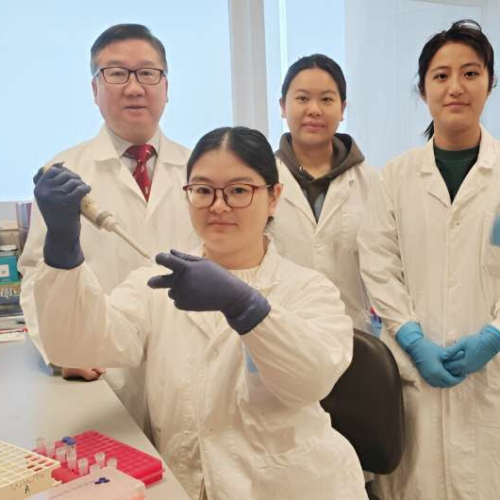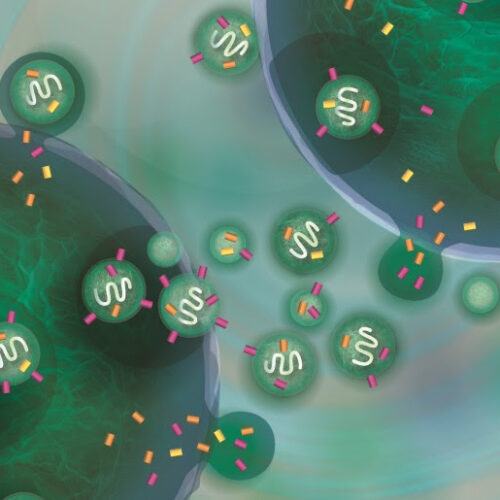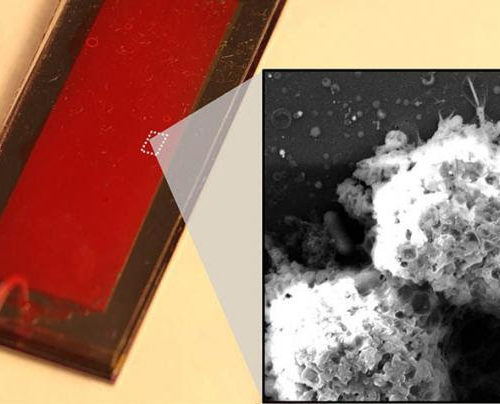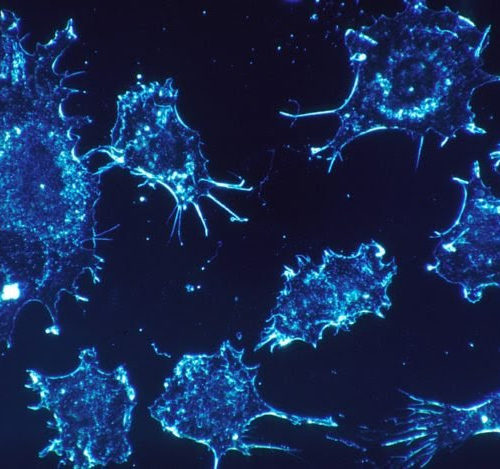They might not make you beautiful, but research suggests exosomes might help us diagnose and treat diseases. By November 1, 2024 GETTY IMAGES This article first appeared in The Checkup, MIT Technology Review’s weekly biotech newsletter. To receive it in your inbox every Thursday, Over the past month or so, I’ve been working on a story about exosomes....
Tag: <span>Exosomes</span>
Exosomes are touted as a trendy cure-all. We don’t know if they work – exosomes
Kelsey DakeThere’s a trendy new cure-all in town—you might have seen ads pop up on social media or read rave reviews in beauty magazines. Exosomes are being touted as a miraculous treatment for hair loss, aging skin, acne, eczema, pain conditions, long covid, and even neurological diseases like Parkinson’s and Alzheimer’s. That’s, of course, if...
Researchers develop dual anti-tumor vaccine
by The University of Hong Kong Will Wei QIAO. Credit: The University of Hong Kong A research team at the LKS Faculty of Medicine, the University of Hong Kong (HKUMed), has discovered that exosomes derived from γδ-T cells not only have direct anti-tumor effects but also, when developed into a tumor vaccine, can effectively induce...
The MicroRNA Content of Exosomes in the Context of Aging
Much of the communication between cells is carried in extracellular vesicles, membrane-wrapped packages of signaling molecules. Vesicles are classified by size at present, though the nomenclature is often used confusingly and inconsistently. Exosomes are one class of smaller and frequently studied vesicle. Since it is now comparatively cheap to analyze the contents of vesicles obtained from blood samples,...
Isolating exosomes
A new exosome isolation kit, developed by FUJIFILM Wako Pure Chemical, could help researchers establish a better understanding of the extracellular vesicles’ many functions. Exosomes are small, membranous vesicles released from cells, that were originally considered simply as removers of cellular waste. Now, as their roles in cell-cell communication and transportation of useful molecules are...
The first systematic way to catch natural killer cells and get them to release cancer-killing packets called exosomes
MICHIGAN MEDICINE – UNIVERSITY OF MICHIGAN IMAGE: TWO LARGE NATURAL KILLER IMMUNE CELLS ARE SURROUNDED BY THEIR MUCH SMALLER EXOSOMES ON THE NK-GO MICROFLUIDIC CHIP DEVELOPED AT THE UNIVERSITY OF MICHIGAN. CREDIT: IMAGE COURTESY OF YOON-TAE KANG AND ZEQI NIU. Building on the promise of emerging therapies to deploy the body’s “natural killer” immune cells...
Researchers discover cell communication mechanism that drives cancer adaptation
Collaborative Cancer Research UK-funded studies from University of Oxford researchers have uncovered a new mechanism by which cancer cells adapt to the stresses they encounter as they grow and respond to therapies. This mechanism involves cells releasing small vesicles, known as exosomes. These contain complex mixtures of proteins, RNAs and other molecules, which can re-programme...
A practicable and reliable therapeutic strategy to treat SARS-CoV-2 infection
Absorbed plant MIR2911 in honeysuckle decoction inhibits SARS-CoV-2 replication and accelerates the negative conversion of infected patients NANJING UNIVERSITY SCHOOL OF LIFE SCIENCES A practicable and reliable therapeutic strategy to treat SARS-CoV-2 infection: absorbed plant MIR2911 in honeysuckle decoction inhibits SARS-CoV-2 replication and accelerates the negative conversion of infected patients In a new study in...
What are Exosomes?
By Catherine Shaffer, Ph.D. Reviewed by Chloe Barnett, BSc Exosomes are vesicles, or cellular components, that exist outside of a cell. They are generally understood as having been released from cells upon fusion with an intermediate endocytic compartment, or a multivesicular body (MVB). When the MVB fuses with the plasma membrane surrounding the cell, intraluminal vesicles are released into the extracellular matrix and...
Exosomes are key to SOS signal that the heart muscle sends out after heart attack, study reveals
Reviewed by James Ives, MPsych Human cells shed exosomes. These tiny extracellular, membrane-bound vesicles can carry cargo for cell-to-cell communication, ferrying diverse loads of proteins, lipids or nucleic acids. University of Alabama at Birmingham and Chinese researchers now report that exosomes are key to the SOS signal that the heart muscle sendsout after a heart attack. After the heart attack, the exosomes in the bloodstream carry greatly increased amounts of heart-specific microRNAs — an observation seen in both...
- 1
- 2





